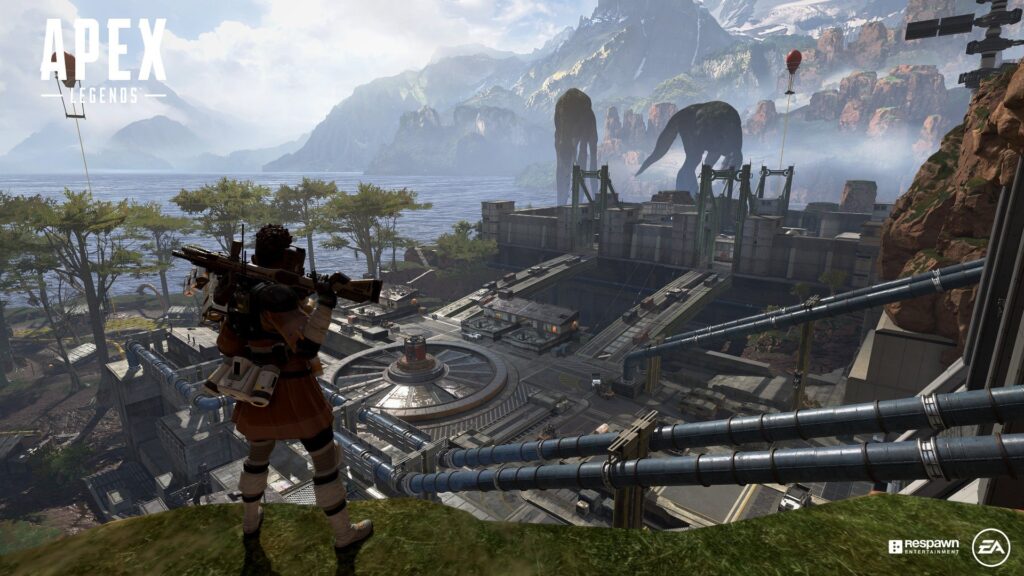
If you haven’t purchased EA stock yet, Bank of America Merrill Lynch thinks it’s the right time to invest. The investment bank upgraded EA’s stock from Neutral to Buy after Titanfall’s battle royale spin-off Apex Legends launched last week to critical acclaim from the gaming community, according to Seeking Alpha.
EA’s stock peaked as high as $106.78 per share at 3:03pm ET today, Seeking Alpha’s EA portfolio reports. While that stock price misses EA’s 52 week high at $151.26 per share, and the company has since dropped to $98.82 as of 3:03pm ET, it’s still a phenomenal rally for a company that dipped as low as $78.79 per share on Feb. 6.
Apex Legends came at a critical time for EA’s performance on the stock market: after five months filled with losses, EA’s shares started climbing on Feb. 7, according to Bloomberg. The increase came after Respawn Entertainment co-founder Vince Zampella announced the game broke 10 million players in just 72 hours, with “1 million concurrent players” enjoying the game. And, as of this morning, Apex Legends hit 25 million players.
“From all of us at Respawn, thank you for giving us and Apex Legends a chance,” Zampella wrote last week. “Thank you for joining us on this journey. This is just the beginning! We have so much more in store for you this year.”
Apex Legends’ performance isn’t just impressive for an EA game, it’s also noteworthy for the battle royale genre as a whole. The game reportedly attracted 10 million players faster than Fortnite, with the latter earning 10 million users only after two weeks, BetaNews reports.
But analysts encourage investors to remain skeptical. As Motley Fool’s Rich Smith points out, EA’s stock rise is still an “underwhelming” gain for investors overall: if EA’s stock rises as high as $110, as Merill Lynch predicts, it would merely be “less than a 7 percent gain for buyers.” Smith is also quick to point out that competition “is heating up, and there’s no guarantee that EA will be able to hold on to its early gains in the field.” That’s a fair point, and it’s one of the reasons why gamers should not call Apex Legends a “Fortnite killer.”
But more importantly, Apex Legends isn’t a “Fortnite killer” because it’s not trying to be a “Fortnite killer.” The two games are fundamentally different: one is an easy-to-learn, difficult-to-master first-person shooter battle royale title, while the other features a high skill curve where players must learn how to secure offensive and defensive positions by building forts on the fly. There are similarities between both games—such as weapon scavenging, permadeath, and players traversing an enormous map in order to reach an ever-decreasing circle—but Apex Legends doesn’t feel nor play like Fortnite.
Its bullet spread system makes it much more like Battlefield than Fortnite, and its character select system has more in common with Overwatch and Realm Royale than anything else. Apex Legends is a battle royale title, sure, but it’s not killing anything: it’s sharing the market with another battle royale title.
As analysts continue to look at EA’s stock, they have to remember why Apex Legends is so successful. The game proves that the battle royale genre hasn’t been picked clean of fresh ideas yet. An innovative game development studio with ambitious and experimental ideas can push the genre to its limits, the same way that Fortnite and Call of Duty: Black Ops 4’s Blackout mode did in the past.
Even if EA’s stock only recovers temporarily, it’s a sign that the battle royale genre can reinvigorate the gaming community one franchise at a time. And that’s a promising sign for EA. Case in point, Apex Legends seems to have increased Titanfall 2’s playerbase, with over 10,000 players hopping online to play the game on Xbox and over 3,400 players on PC yesterday, according to PCGamesN. Even if Apex Legends drops off in popularity, its long-term effects cannot be understated: both for gamers and for EA’s finances.
 GameDaily.biz © 2026 | All Rights Reserved.
GameDaily.biz © 2026 | All Rights Reserved.